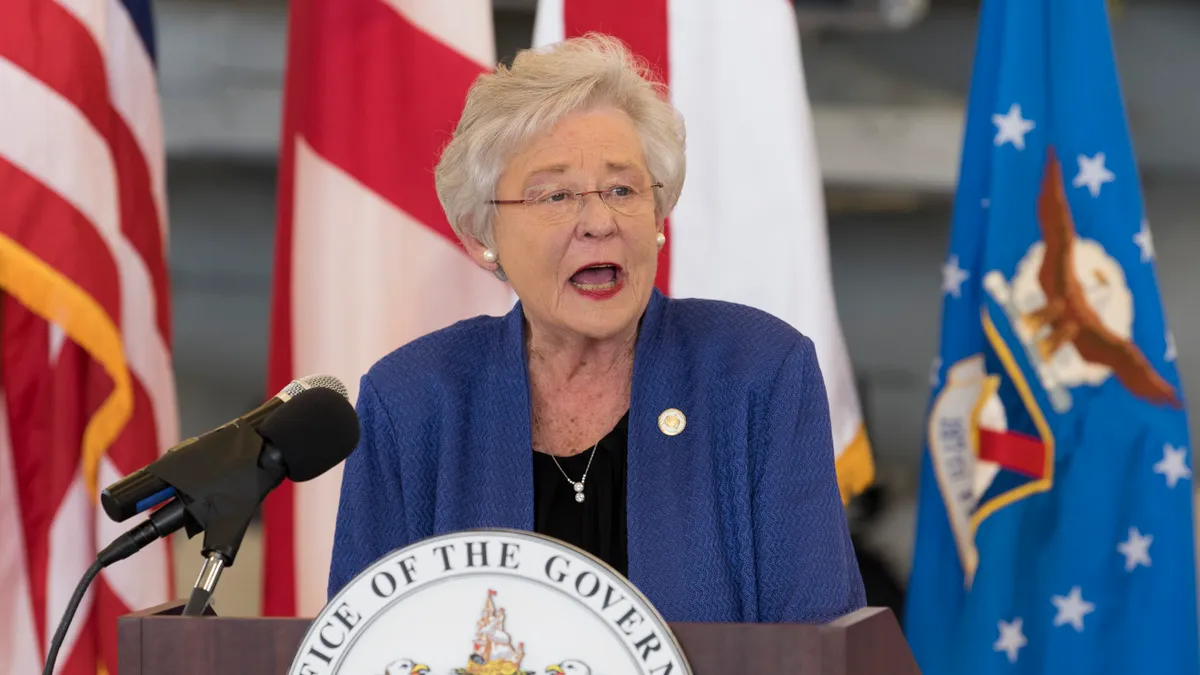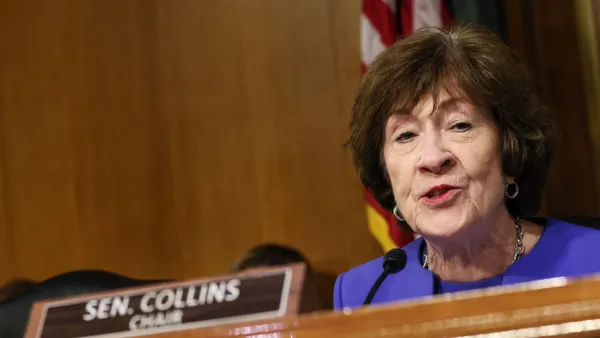Dive Brief:
- Alabama Gov. Kay Ivey signed a law on Tuesday that will ban public schools and colleges from funding diversity, equity and inclusion efforts, continuing a nationwide push by conservatives to remove such programs from education systems.
- The legislation will also ban Alabama public schools and colleges, as well as state agencies, from requiring students or employees to take trainings, orientations or coursework that promote “divisive concepts."
- The bill’s list of divisive concepts includes the ideas that a person of any race, sex or religion is inherently privileged or that anyone should acknowledge a sense of complicity based on those traits. The measure will take effect Oct. 1.
Dive Insight:
The Alabama DEI bill resembles language found in laws passed in Florida, Utah and Texas, as well as legislation being considered in Kentucky and Ohio.
But Alabama's proposal goes even further, said PEN America, a free expression advocacy group.
"The result would be a campus environment devoid of intellectual freedom, and a state law so draconian that it gives Florida a run for its money," the organization said in February after the bill's introduction.
The bill, SB 129, won't prevent students or staff from hosting DEI events, as long as state funds are not used. In Alabama, approximately 63% of district funding comes from the state, as opposed to other sources like local property taxes, according to The Education Trust, which gathers data from federal sources.
But prior to the governor's signature, PEN America said the legislation would still stymie programming for students.
The new law prohibits local boards of education from requiring students or employees to attend or participate in DEI programs, training, orientation, or coursework that "advocates for or requires assent to a divisive concept." It allows local boards of education to discipline or terminate employees who violate the law.
The bill would prohibit DEI offices and programming in which participation is based on identity group, PEN America said earlier.
The legislation will not supersede federal laws or accreditation standards. It also does not alter any previously established state law that may require Alabama boards and commissions to be inclusive and reflective of the state's diversity.
Since the bill's introduction in February, students and free speech advocates have pushed back on its contents.
The American Civil Liberties Union of Alabama said the legislation uses wide-ranging, vague language and is intended to chill campus discourse. The criticism is similar to the pushback against LGTBQ+ and race-related curriculum restrictions, which gained steam in conservative states prior to anti-DEI measures.
"This is not only a form of classroom censorship, it’s an anti-truth bill which curtails an education on systemic inequities, racial violence, and the historic efforts to gain civil rights and civil liberties for marginalized communities throughout our nation’s history," the state ACLU chapter said.
While the K-12 sector has shifted toward culturally inclusive practices in recent years, DEI efforts picked up pace particularly after the civil rights protests of 2020 following the killings of George Floyd and other Black Americans by police.
Following Floyd's murder, there was an uptick in requests by U.S. public school teachers for anti-racist classroom resources by or about people from marginalized communities, according to a 2021 study by researchers at Carnegie Mellon University in Pittsburgh.
The increase was driven primarily by teachers whose students were younger than 10. Researchers found the books sparked classroom discussions on race and social justice issues, including “themes of representation, self-esteem, empathy, and acceptance.”















